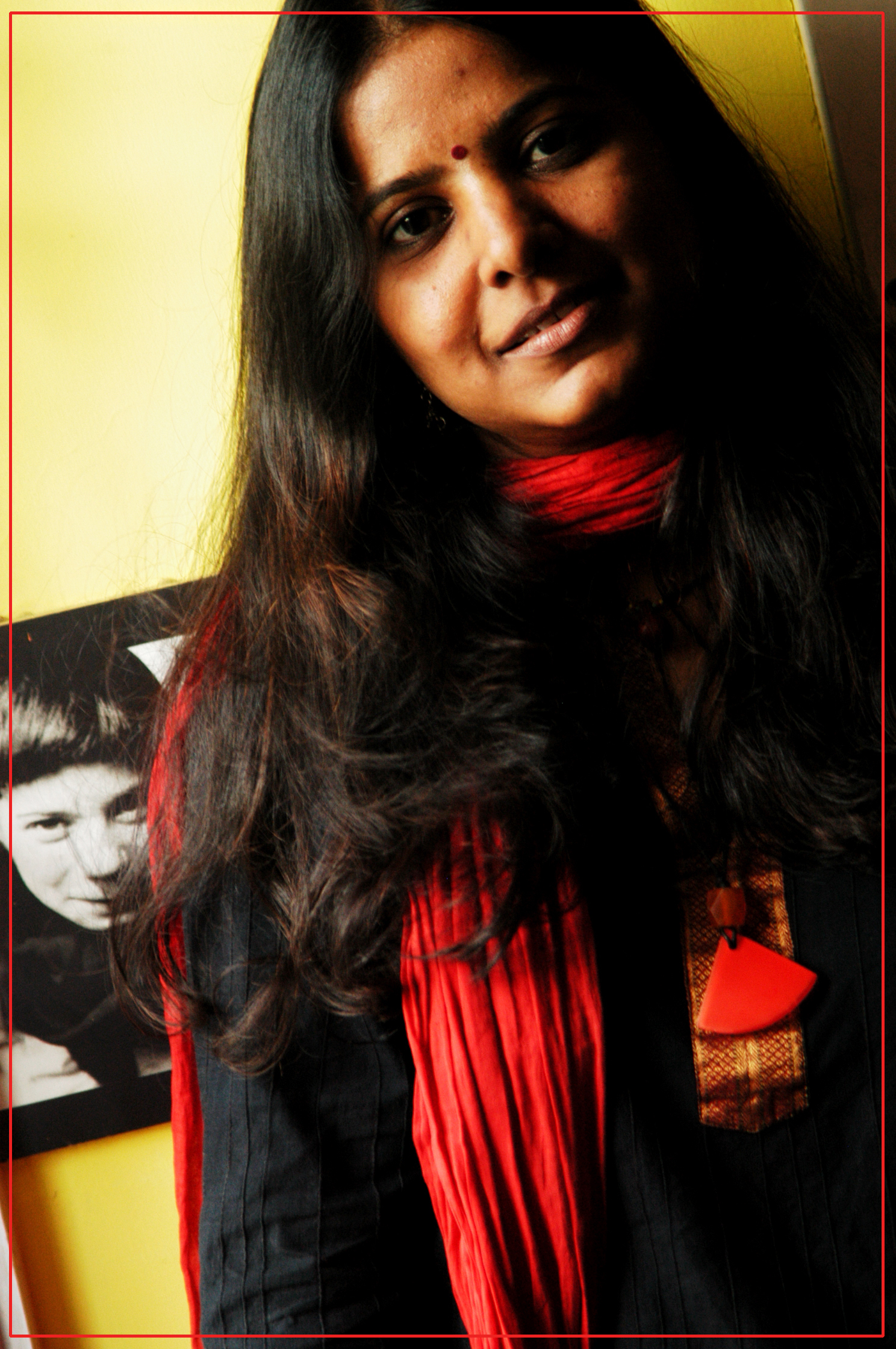The relevance and resilience of Indian poet and filmmaker Leena Manimekalai
As she seeks to amplify marginalized voices, Manimekalai pushes boundaries through her work about human experiences.
“When I make political art, the world wants me dead,” says Leena Manimekalai, a Toronto-based poet and self-taught filmmaker of South-Asian descent. For centuries, art has been used as a political medium to communicate and amplify the woes, triumphs, and journeys of human beings living in a complex and faulty world. Individuals and communities have long demanded artistic expression in the political and personal spaces they occupy.
But what happens when certain artists and their art are belittled, censored, or cheapened? What does the precarious state of the artist say about the society we live in? How can art be used to serve the human condition rather than reduce it? These ideas and questions are what Manimekalai ruminates on as she engages in the delicate process of crafting her stories and poems.
The Medium talked with Manimekalai about her artistic journey, the major themes that define her work, and her numerous confrontations with censorship.
Manimekalai’s work treads a vast landscape, ranging from activism for marginalized communities to environmental politics, and from eco-feminism to LGBTQ+ issues. So far, her body of work includes several independent and acclaimed films and six poetry anthologies. In her directorial debut film Sengadal (2011), Manimekalai experimented with participatory filmmaking, a creative practice that engages with the voices of a community as its subject. She specifically used a narrative documentary to highlight the everyday experiences and struggles of the fishermen and Sri Lankan Tamil refugees living around the Indo-Sri Lankan border. In this context, participatory means that the bulk of the actors in the film are real-life members of the Sri Lankan Tamil Refugee community.
The approach of participatory filmmaking is not only strikingly relevant to the political motivations of the film, but “[it] resulted in life interchanges among fishermen, refugees, and the film community,” Manimekalai shares. “[Sengadal] provided a common ground where various struggles and pain could be shared.”
As she continued to push the boundaries of her experimental artistry and the type of stories she could tell, Manimekalai found her relationship with art had evolved.
While working on White Van Stories (2013), a documentary chronicling the humanitarian and national crises incurred by enforced disappearances in Sri Lanka (specifically in the Sri Lankan Tamil and Sinhalese communities). Manimekalai’s focused on the intangible and interior realities of a people and a nation in crisis. “My focus was not on the physical evidence but on the interiority of subjects and their testimonies,” she says. “This process taught me how films become memorials when a nation state attempts to destroy social memory and to erase all traces of its terror against its own people.”
Often used as a threat by military dictatorships, Amnesty International estimated in a 2022 report that “there have been at least 60,000 and as many as 100,000 cases of enforced disappearances in Sri Lanka since the 1980s,” with the Sri Lankan government as perpetrators.
Kaali (2022), one of Manimekalai’s recent works, has stirred the political and religious sensibilities of many viewers and nationalists belonging to India’s Hindutva community. Kaali, a performance documentary, shows Manimekalai as a modern enactment of Kali, a Hindu goddess that represents many different qualities, among them power, change, time, and destruction. As Kali, Manimekalai loiters the streets of Toronto, engages in rebellious acts, and shares her humanity with people from various creeds and walks of life, all while asking important questions about belonging and becoming.
Due to its harassment on the political and religious sentiments of many, Kaali has garnered Manimekalai several death and rape threats, among other infringements on her artistic and personal freedoms. In regard to the censorship of her work, Manimekalai says that “whoever wants to censor an artist has something to fear […]. I create, I own, and take all the bruises in the process. That’s been my path. If not me, who will stand by my truth?”
Beyond her filmmaking efforts, Manimekalai is bringing her artistic power and precision to the University of Toronto Mississauga. During the winter term of the 2024-2025 academic year, Manimekalai will be teaching three undergraduate courses in the visual studies department, where she is “interested in building non-vertical, non-hierarchical, and dialogically open classrooms to ultimately highlight the role of pleasure and enjoyment in both teaching and learning.”
As she heads into the future, there are many projects and ideas that Manimekalai wants to explore. Currently, she is preoccupied with environmental storytelling, using artistic expression to communicate the lives of Indigenous youth in Amazonia amidst Earth’s increasingly degrading climate. She is particularly enthusiastic about continuing her work with participatory filmmaking and venturing into diverse cultural contexts to enrich her creative process.
Manimekalai says that no matter what direction her art and voice take her, she wants to be “remembered in the film industry as a perpetual asker of uncomfortable questions who relentlessly tried to spotlight the unseen, unheard, [and] unvalued human lives and struggles.”
Associate Opinion Editor (Volume 50) — Mashiyat (”Mash”) is a second-year student completing a specialist in Neuroscience and a double minor in Biology and Professional Writing and Communications (PWC). As an associate opinion editor, she hopes to use her voice to encourage others to write freely and unabashedly about the things that mean most to them. In her free time, Mash can be found striking up conversations with strangers in the city, cooking for her family, and being anxious about her nebulous career plans!


